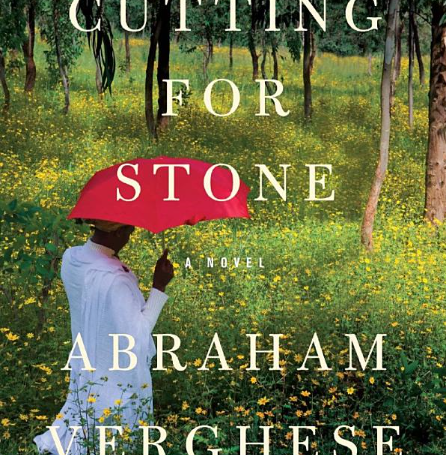
Why I listed “Cutting for Stone” by Abraham Verghese as the First in My “Books I love” Series.
This book was recommended to me by a friend, also a cardiac surgeon. He found out that they, with the author, were trained by the same surgical superstar, Dr. Thomas Starzl. In surgery, the provenance means a lot.
It took me a few years to get to the book. At first, I didn’t really like the story. 650 pages is far too many. Too many characters, too complicated and convoluted plots. Many pages resemble the operating room manual. For some people, the novel was too graphic. Some felt it was misogynistic. The ending was not clear to me.
But then came the good points.
The author is close to my age. He was born in an impoverished and conflicts torn country. He started his surgical training there and completed it in the United States. This ringed the bell. His upbringing reminded me of my heritage and my formative years.
Verghese describes his residency and the initial work in this country as dehumanizing, brutal and exhausting. But he loved it. Again, I was there. What readers described as “too many medical details”, I found quite interesting. It was time, all this was a part of my life.
Here are a few examples.
The vasectomy description scene was brilliant. The author also admitted he had some help in describing the scene.
There were many pearls, some only a medical person can appreciate.
“Thou shall not operate on a patient on the day of his death.” This was his Eleventh Commandment. How true. You don’t have to do surgery just because you can. It takes many years for a surgeon to understand. Some never can.
“Lime, lemon, orange and grapefruit” depicts 2, 4, 6 and 8 centimeters of dilatation of the cervix during the delivery. These mental acronyms were quite common. Another one was “Forty, Fat, Fertile, Female”. Some included Family history. That was for the diagnosis of cholelithiasis.
“Flatus, fluid, feces, foreign body and fetus feel better out than in.” Seems trivial, but how true.
“A rich man’s faults are covered with money, but surgeons are covered with earth.” Another was “Every surgeon carries within himself a small cemetery, where occasionally he goes to pray––a place of bitterness and regret, where he must look for an explanation for his failures”. That was said by the French luminary René Leriche. For some surgeons, in the moments of elation, it is good to remember the past moments of humility.
Food metaphors we use to describe disease! More often by pathologists than be the surgeons.
“Pregnancy is a sexually transmitted disease.” Seems cheap and demeaning. And pregnancy is not a disease. But if you think about…
“Injuries to the vena cave behind the liver are when the surgeon sees God.” Lacerations of this large, more than 1 inch in diameter, thin-walled, not collapsing and notoriously difficult to access tube are the moments when any surgeon’s life is running with high speed in front of his eyes. Times like that separate boys from men, and take months from any surgeon’s life.
“What treatment in emergency is administered by ear?” These are the words of comfort. The ultimate sign of compassion.
The reviewers complain about too many medical details. For me, they turned out to be the best part of the book…
But that was not what got my attention. That was the father-son relationship. “One can only become a man when his father dies.” The statement originally made by Sigmund Freud. That was a beauty. This is a universal truth. I then realized that the entire story was about the father-son relationship.
But for that, one has to read the story.
“Cutting for Stone” is my favorite book, describing that sacred bond, around which I centered my entire writing.
And that’s the reason it is listed as the first in my “Books I love” series.
This book is not for everyone. But I am a fan.

2 Comments
Well taken. I have to admit that I also have my favorite books. I am observing that I change my attachment to the book when finding that other one that is supplementary to the previous. My recent favorite is “Prawiek i inne czasy” by Olga Tokarczuk. All the best Teresa
I am so glad you told me about Cutting for Stone. Verghese writes so well that I must read his other works. Best of luck in your writings to come.